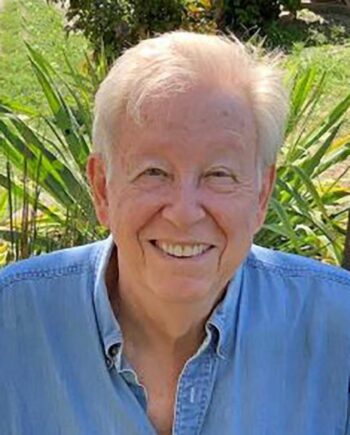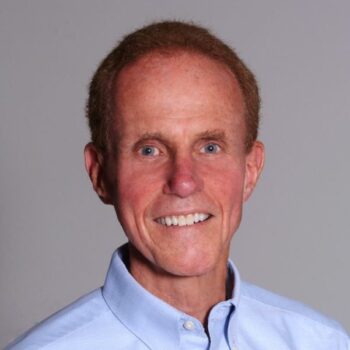By Rusty Wright and Mark I. Pinsky –
(This article first appeared on WashingtonExaminer.com.)

Tired of polarizing rancor, food-fight media, and constant “gotcha” bickering? Try befriending someone from the “other side” whose views differ greatly from your own. You might learn lots. We did.
At Duke in the late 1960s, Mark was the “Readable Radical;” Rusty a Campus Crusade for Christ (now called Cru) leader. We were on opposite sides of many issues. Today – still a left-wing Jewish Democrat (who supports the forces of progressive reform in Israel) and an evangelical speaker/writer – we are fast friends, collaborating on writing projects, sharing professional and personal advice, staying in each other’s homes, and more.
Odd couple
Perhaps this journalistic odd-couple story could facilitate bridge-building in wider culture. Maybe yours.
Some context: During our university years, U.S. campuses were aflame with revolution. The Vietnam War, civil rights movement, sexual revolution – and what Time magazine dubbed the Jesus Revolution – were all happening at once.
Mark’s Duke Chronicle “Readable Radical” column expressed his leftist convictions. Cru fundraisers sometimes showed the Chronicle to donors as, “This is what we’re up against.” Though we differed in many areas, I (Rusty) always respected Mark’s dedicated concern for people who are hurting and his abhorrence of hypocrisy.
Mark recalls his initial reaction when we met in the Chronicle office: “I disagreed with Rusty on cultural, political and theological assumptions, but I was disarmed by his amiable, humorous and self-deprecating manner. We didn’t become friends then, but he made an indelible impression on me.”
Reconnecting

Over the years, Rusty read Mark’s articles in the Los Angeles Times and Orlando Sentinel covering evangelicals and other themes. We reconnected at a 1999 press convention. Soon we were interacting regularly about work and life: writing, speaking, national and international events. The press convention later invited us to speak about our relationship.
Rusty recalls, “Mark and his wife, our classmate Sallie Brown, opened their home as my B&B while in Orlando. Sallie and I would stay up late watching Duke basketball while Mark worked on his writing. But his hoops fandom is improving. On his initiative, last March we co-authored ‘Divine Dilemma: Who gets God’s nod in March Madness?'”
“Knowing my longtime interest in Holocaust studies, Mark took me to Orlando’s Holocaust Museum. We had lunch with his elderly Jewish friend, Norm, who had served as a doctor at a Catholic hospital after World War II.”
Cancer, death, Job
“With my late wife’s cancer diagnosis, Mark and Sallie very kindly prayed for us both. As I coped with Meg’s death, I found myself focusing on the book of Job. Mark asked that I send him my reflections from Job for a special Yom Kippur speech at his synagogue. Composing that letter helped me in processing her death.”
Mark earned respect among evangelical leaders for his fairness. He notes how our friendship aided his writing: “I wanted to know about the evangelical world from the inside, from a source I knew I could trust. Rusty was it. He wanted a fair portrayal of his world, without harmful caricature. He became my sounding board and go-to editor, as well as a valued friend.”
How did this friendship develop?
How did this friendship develop? We accept our differences – philosophical, political, spiritual – as givens. We have many similarities: generational, educational, social concerns (especially racism, poverty, anti-Semitism). Our anti-racist commitment is vital. Faith interest and sense of humor also help. We’ve met each other’s family members and friends.
We offer personal advice when asked. We are committed to civility. We value our friendship and enjoy developing it.
An ancient Hebrew proverb notes that “a sweet friendship refreshes the soul.” Another observes, “As iron sharpens iron, so a friend sharpens a friend.” We are grateful for friendship that refreshes and sharpens us. We recommend that philosophical opposites try this. Maybe civil discourse can become more civil.
Rusty Wright is an author and lecturer who has spoken on six continents. He holds Bachelor of Science (psychology) and Master of Theology degrees from Duke and Oxford universities, respectively. www.RustyWright.com
Mark I. Pinsky is an accomplished author, journalist, speaker and social critic. A former staff writer for the Los Angeles Times and Orlando Sentinel, he holds degrees from Duke University and Columbia University. As an investigative journalist specializing in capital murder cases around the Southeast, he has written for the Wall Street Journal and USA Today. His books include Met Her On The Mountain, The Gospel According to The Simpsons, The Gospel According to Disney, and A Jew Among the Evangelicals. www.MarkPinsky.com
Copyright © 2023 Rusty Wright and Mark I. Pinsky
# # #
Editors: High res images available here. You are welcome to republish this article with author- and source-website attribution (i.e., please link back to this website).



